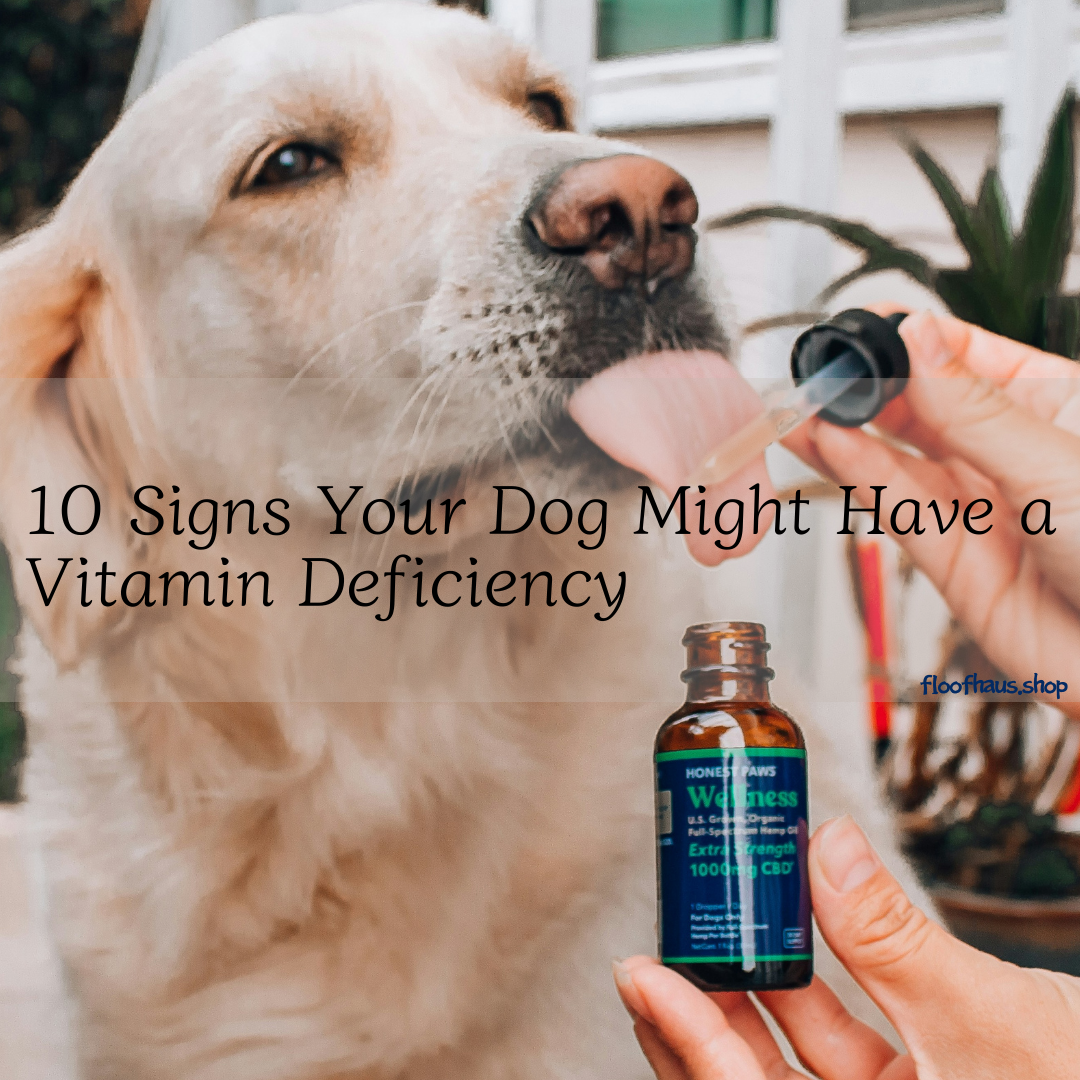
10 Signs Your Dog Might Have a Vitamin Deficiency
Share

10 Signs Your Dog Might Have a Vitamin Deficiency
Every pet parent wants their dog to thrive — bounding with energy, sporting a shiny coat, and wagging their tail with joy. But when something feels “off,” it’s easy to miss that the root cause could be nutritional. A dog vitamin deficiency doesn’t always show up overnight. Instead, it can quietly develop over weeks or months, revealing itself in subtle ways.
Below, we’ll explore the 10 most common signs of dog vitamin deficiency, why they happen, and how you can help.
1. Dull or Dry Coat
Your dog’s coat is one of the first indicators of internal health. A shiny, smooth coat usually means their body is nourished. On the other hand, dullness, dryness, or brittleness can suggest deficiencies in omega-3 fatty acids, vitamin E, or biotin.
Tip: Incorporate foods rich in healthy fats like salmon oil or consider a vet-approved skin & coat supplement.
2. Excessive Shedding
All dogs shed, but when fur loss becomes excessive or patchy, nutrient gaps may be at play. Zinc, B vitamins, and protein deficiencies often show up in coat health.
Did you know? Zinc deficiency is particularly common in northern breeds like Huskies and Malamutes.
3. Low Energy or Fatigue
Does your pup seem less playful or sleep more than usual? Energy slumps can be tied to B vitamin or iron deficiencies. These nutrients are critical for oxygen transport and cellular energy production.
If your dog’s activity level has dropped noticeably, schedule a vet visit to rule out underlying illness.
4. Digestive Upset
Frequent diarrhea, constipation, bloating, or vomiting may signal dietary imbalances. Low fiber or missing digestive enzymes can make nutrient absorption more difficult, compounding the issue.
Tip: A probiotic can support gut health, but always ask your vet before introducing new supplements.
5. Slow Wound Healing
Minor scrapes or cuts should heal fairly quickly. If healing is delayed, your dog may be missing essential nutrients like vitamin C, vitamin K, or zinc, all of which play a role in tissue repair and clotting.
6. Brittle or Cracked Nails
Weak, splitting nails can frustrate both dogs and owners. Biotin and calcium deficiencies are common culprits. Left unaddressed, brittle nails can cause pain and increase the risk of injury.
7. Joint Stiffness and Mobility Issues
Older dogs or large breeds may already be prone to arthritis, but poor nutrition can worsen the condition. Vitamin D and glucosamine are vital for bone and joint health. Without them, stiffness and pain may set in sooner than expected.
8. Loss of Appetite
A decreased appetite can stem from many causes, but nutritional gaps are often overlooked. Some dogs may even develop pica — the urge to chew or eat non-food items — which can be linked to mineral deficiencies.
9. Skin Irritations and Infections
Itchy skin, frequent ear infections, or recurring hot spots often trace back to poor diet. Deficiencies in vitamin A, vitamin E, or omega-3 fatty acids can compromise the immune system, making your dog more prone to skin issues.
10. Mood and Behavior Changes
Surprisingly, behavior can be a key indicator of health. Anxiety, irritability, or restlessness may point to nutritional imbalances. Magnesium and B vitamins, for example, support the nervous system and overall mood balance.
How to Prevent a Dog Vitamin Deficiency
- Feed a balanced diet – Choose high-quality commercial dog food that meets AAFCO standards.
- Limit table scraps – Human food can upset nutrient balance.
- Add supplements wisely – Not all dogs need extra vitamins. Work with your vet to identify gaps.
- Stay consistent – Dogs thrive on routine; sudden dietary changes can stress their system.
At Floofhaus, We Care About Your Pet’s Health
At Floofhaus, we know how important it is to keep your dog healthy and happy. That’s why we carry carefully curated products — from joint support chews to omega-rich skin & coat supplements — designed to prevent issues like a dog vitamin deficiency before they even start.
Every dog deserves the best chance at a long, vibrant life — and with the right nutrition, they can thrive.
Sources
American Kennel Club (AKC). Vitamins & Supplements for Dogs
VCA Animal Hospitals. Nutrition in Dogs
PetMD. Vitamin Deficiencies in Dogs
Cornell University College of Veterinary Medicine. Dog Nutrition Basics
